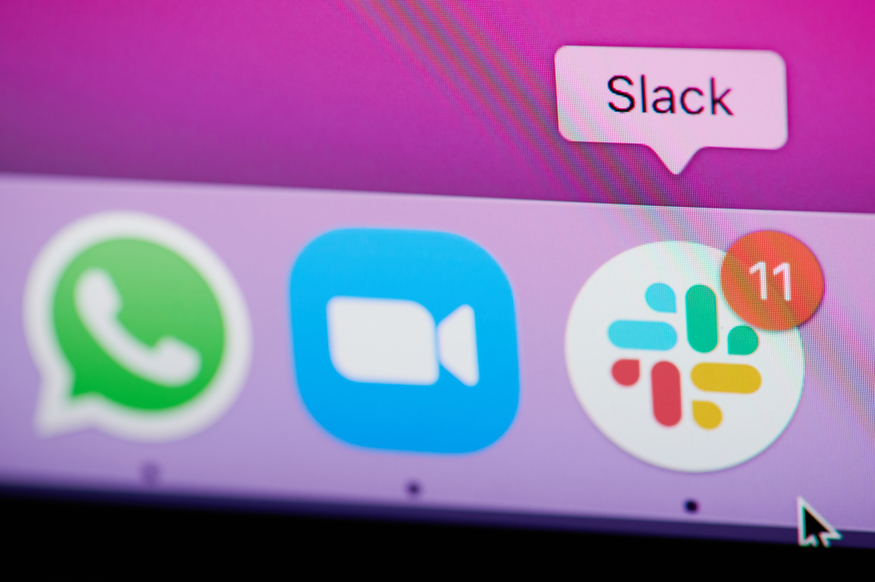Hybrid collaboration tools like Slack and Microsoft Teams have been critical to team cohesiveness and productivity in this age of remote work. But they can also become a cesspool for toxic work habits.
“I worked for a company that made fun of people after they quit…An employee’s last day would be on a Friday. By Monday, the leadership team was using Slack to bad-mouth them. Even the CEO,” says Brianna Doe, now a senior demand generation manager at Inventables. “It was one of the weirdest – and most toxic – things I’d ever seen at work. After I quit, I found out that my former manager had done the same thing to me.”
A toxic work environment can seep into people’s personal time and space in several different ways due to hybrid collaboration tools. These behaviors can come from the top (as illustrated in the example above) as well as within teams.
“Hybrid collaboration tool noise is a huge problem that only gets bigger as companies scale. It costs companies significantly in lost productivity,” says Adam Hofmann, co-founder of Responsum, an Austin-based intelligent Digital Assistant in Slack and Teams that solves some of these challenges.
“To foster a great work environment, employers need to put as much energy into fixing and preventing toxic ‘digital watercooler’ behavior as they put into face-to-face interactions,” adds The HT Group President Chad Macy.
The Biggest Offenders
What types of behaviors are the biggest offenders when it comes to hybrid collaboration? Here are a few:
Badmouthing Brad: Doe’s experience above is a classic case of toxic management trickling into digital work environments. From microaggressions to full-blown gaslighting, these behaviors can destroy your recruiting and retention efforts.
Boundaryless Betty: Many of us have learned to step away from our desks and ignore colleagues emailing and even calling outside of work hours, but that Slack “ping” can be harder to tune out. It’s been compared to the proven addictive high (and, conversely, the FOMO or fear of missing out) of participating in other social media venues.
Distracted Darby: The big joke about Slack right now is that it’s becoming filled with productivity-squashing memes and gossip. The green “Active” light that appears when someone is at their work desk with their hybrid collaboration tool at the ready was an early-pandemic measure of productivity. But now? “It’s much more complicated than simply checking to see if someone’s green light is on,” says Recruiting Daily

Exclusive Ellis: Allowing exclusive and private “you can’t sit at our table” channels on your company Slack can obviously lead to trouble. Leaning too far into forcing every conversation to be public, however, can be problematic, too, especially when it’s coupled with the next problem…
Lay-Down-the-Law Lucy: Company Slack owners and admins can edit or delete messages and can even deactivate user accounts when necessary. But as with social media usage, overly policing Slack conversations, groups, and other behaviors is a slippery slope (as Away.com and Apple both discovered).
Regaining Control of Hybrid Collaboration
What’s your best Slack approach? That’s up to you. Every organization and work culture is different. Responsum trains their Digital Assistants to answer common questions and automate repetitive tasks to help people stay focused while still making sure everyone has what they need. You can find out more about how they do that here.
Other insights we’ve found include:
- Setting digital boundaries with chatty coworkers.
- Connecting in a disconnected workplace.
- What distractions at work cost a company.
- Productivity, anxiety and Slack.
- Slack channels as a work benefit.
- What Slack channels say about your company’s culture.
- Recognizing a digital toxic work environment.
It’s still the Wild West of hybrid collaboration, however, and very few employers have specific policies in place to address the challenges above. As with social media, though, ignoring the need for a policy can severely backfire. Talk to your HR and legal advisors about your questions and concerns (and if you need an HR advisor, we can help).




